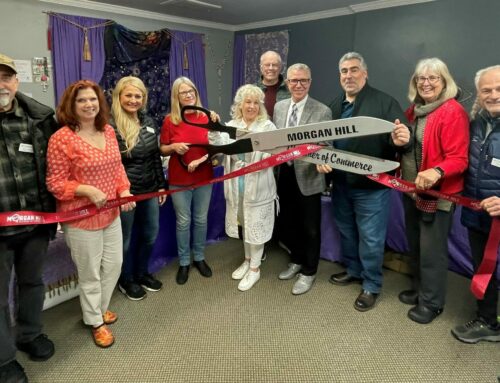Published in the January 18 – January 31, 2017 issue of Morgan Hill Life
By James Ward

James Ward
Medicare health insurance covers about 54 million people. About 11 million of those people will end up with a hospital stay each year. Some of those will be there for just a day or two, and some will be there for much longer.
What if you or your loved one is being discharged and you think it’s too early for the discharge? What if you think another day or two, or even more, would make a big difference in the person’s health, stability, and recovery?
As one expert said, “There’s enormous pressure on discharge teams to get patients out.”
We know that hospitals are notorious for discharging patients early, but what can a patient or their family do when the hospital is forcing a discharge? They can’t force you to stay, but can they force you to leave?
Medicare has a special process to protect Medicare patients from early discharge, but you have to act fast. The process is actually called a “fast appeal.” Filing the appeal is easy, but you have to know the rules, and the timing is critical.
A hospital stay produces a lot of paperwork, but you need to pay attention. Within two days of your hospital admission, and certainly prior to discharge, you should get a notice called “An Important Message from Medicare about Your Rights.” This is sometimes called the Important Message or IM. If you don’t get this notice, ask for it. When you get it, hang onto it. The notice will give you the name and phone number for the BFCC-QIO. Ha! That’s the Beneficiary and Family Centered Care Quality Improvement Organization. Long and awkward name.
That office, sometimes called the Medicare Quality Improvement Organization (QIO), is the entity charged with handling fast appeals and complaints about the quality of care. If the patient is on Medicare, this office is there to help. But, you have to call them to get them involved.
If you think that the Medicare-covered hospital services are ending too soon, you have the right to a fast appeal, but you need to call and request the fast appeal of a pending discharge (1) ideally before midnight on the day before you are to be discharged, or (2) certainly no later than the day you’re scheduled to be discharged. This must be done before you leave the hospital. Once you speak with someone at the QIO, or leave a message at the QIO, your appeal has begun.
If you ask for the fast appeal, you can stay in the hospital while you wait for the QIO’s decision from an independent physician, and even if the QIO agrees that you are ready to be discharged, you won’t be responsible for paying the hospital charges (except for applicable coinsurance and deductibles) incurred through noon of the day after the QIO gives you its decision.
The appeal buys some time for the patient, but only Medicare patients who have been admitted to the hospital qualify for this type of appeal. If the patient was only under “observation status,” this presents other issues and there is a separate appeals process, so make sure that it’s clear whether the patient has been officially admitted to the hospital.
Some hospitals have been known to hold a patient for several days on observation status, and since the patient was never admitted, that creates other problems — especially if the patient and family were mistaken regarding the patient’s status.
Be informed. Know your rights. Protect yourselves and your loved ones.
Jim Ward is a long-time South Valley resident who resides in Morgan Hill. He raised his children in South Valley and then left for several years while he went to law school in New England and later obtained a post-graduate law degree in Estate Planning at the University of Miami. Jim worked as an Estate Planning and Elder Law attorney in Florida, and then returned home to open his own law firm focusing on both Estate Planning and Elder Law. He maintains one office in South Valley and another in Willow Glen.






